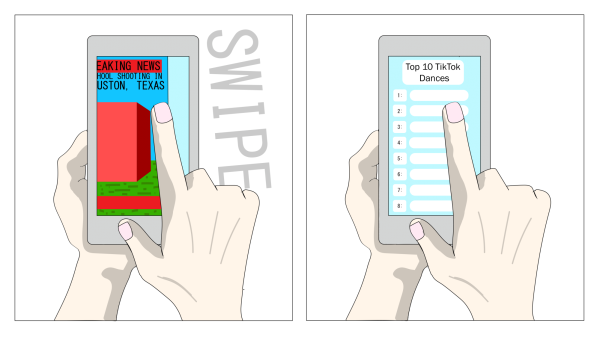Ethicality: a half-truth

photo by Sarah Hinnant
As ethical diets rise in popularity, plant milks have become a frequent item in most grocery stores. However, most dairy substitutes run for almost double the price of regular dairy milk.
Misconceptions about diet culture are spreading like wildfire. While brands continue to take on “eco-friendly” initiatives, prices climb, profits explode and environmental exploitation continues right under consumers’ noses. It’s time for ethical dieters to face the harsh reality: their diet, though held with good intentions, is not always environmentally or financially sustainable.
Saving the animals may be a noble cause, but it does not capture the full truth about sustainable products. In order to appeal to consumers, many brands resort to greenwashing, a term first coined by environmentalist Jay Westerveld in 1986. Greenwashed products claim to be “all-natural,” “eco-friendly” and healthy when they are only contributing to soil erosion, deforestation and pollution. For example, the popular grocery chain WholeFoods prides itself on its eco-friendly practices, yet it suffered a class-action lawsuit in January in which it was accused of advertising its sustainable packaging while continuing to use slack-filled plastic in excess.
Ironically, Simply Gum, a product commonly seen on WholeFoods shelves, dealt with a similar accusation. Though the company frequently advertises that its gum is plastic and synthetic-free, it declined to participate in a self-regulating process during which it would evaluate the extent to which their production process matched their advertising. This brought many to question the authenticity behind its advertising. The biggest problem with environmentally friendly products is not how they are made – it is how they are sold. The only reason companies have shown interest in their carbon emissions is because climate change has taken center stage, and their priorities are purely profit-driven. When commercial growth is their only priority, it makes individual choices like dieting almost pointless, because even if you switch dairy for soy and pay an extra dollar for grass-fed beef, the companies that make these products are only willing to treat sustainability as a marketing facade and are most likely doing the bare minimum to make buyers happy. Consumers need to realize that profits trump genuine concern every time, and the toll that this takes on the environment far outweighs the merit of their personal diet choices.
In itself, ethical dieting is not the culprit behind climate change. In fact, dairy and meat substitutes have been proven to be more sustainable than their authentic counterparts. For example, dairy milk produces more carbon emissions and uses more land and water than any plant-based milk, and though soy is a common meat and dairy substitute, more than 75% of it is grown for animal consumption, helping fuel the ongoing Brazilian deforestation crisis. The problem, therefore, lies in how these products are treated rather than how they are produced
Even if an ethical diet was truly environmentally sustainable, it is not economically so. On average, almond, soy and oat milk are almost double the price of regular dairy milk, while the aforementioned study expects that non-GMO prices will be marked up to 28% higher than their counterparts. If climate change is everyone’s problem, everyone should have access to a solution, but when it comes to dieting, the solution is not financially sustainable. Few are willing to maintain an ethical diet for double the price, and if the green movement is to continue with any sort of legitimacy, everyone needs to be able to participate.
Green diets are too often regarded as the perfect choice when it comes to being sustainable, but that is only a half-truth. Every solution has its flaws, and what you choose to eat is no different. But however imperfect sustainability is, you still have the power to make an impact with your diet. For example, by buying from local businesses instead of from the supermarket, anyone can easily avoid buying from large-scale companies or paying hefty prices. However, when it comes to changing sustainability on a wider scale, helping national organizations like the Humane Society of the United States or United Poultry Concerns will always have the greatest impact. Whether you have taken on an ethical diet to prove a point, boost your health, or save the world, it is up to you to make sure it means something.
Your donation will support the student journalists of Hagerty High School. We are an ad-free publication, and your contribution helps us publish six issues of the BluePrint and cover our annual website hosting costs. Thank you so much!






